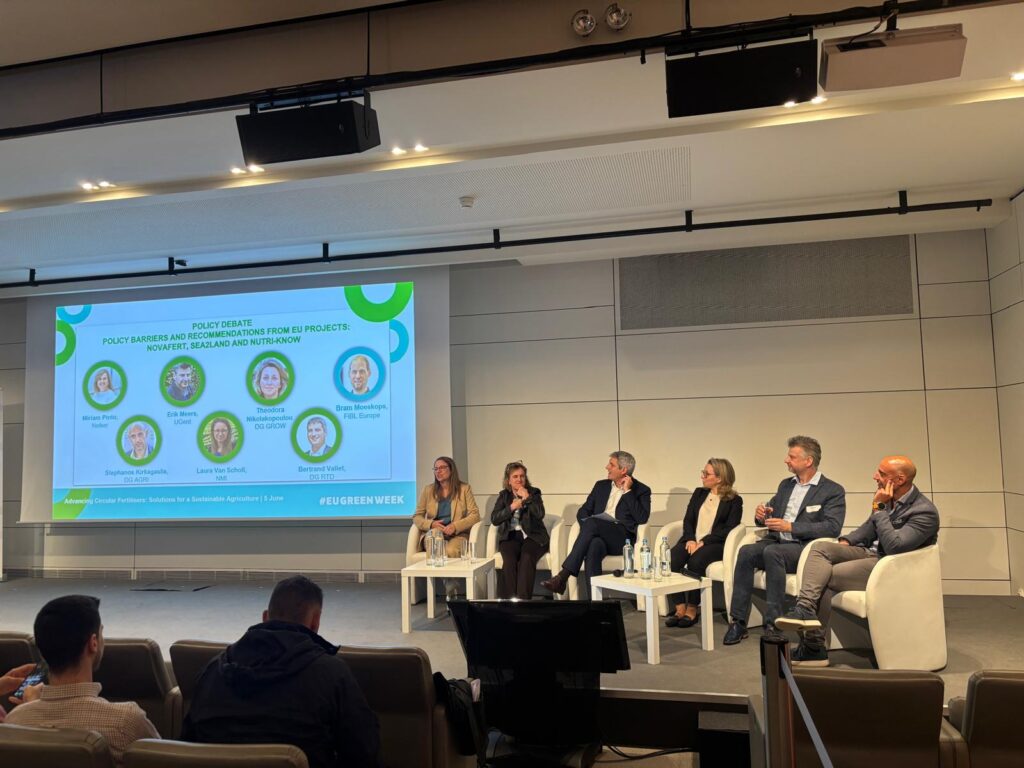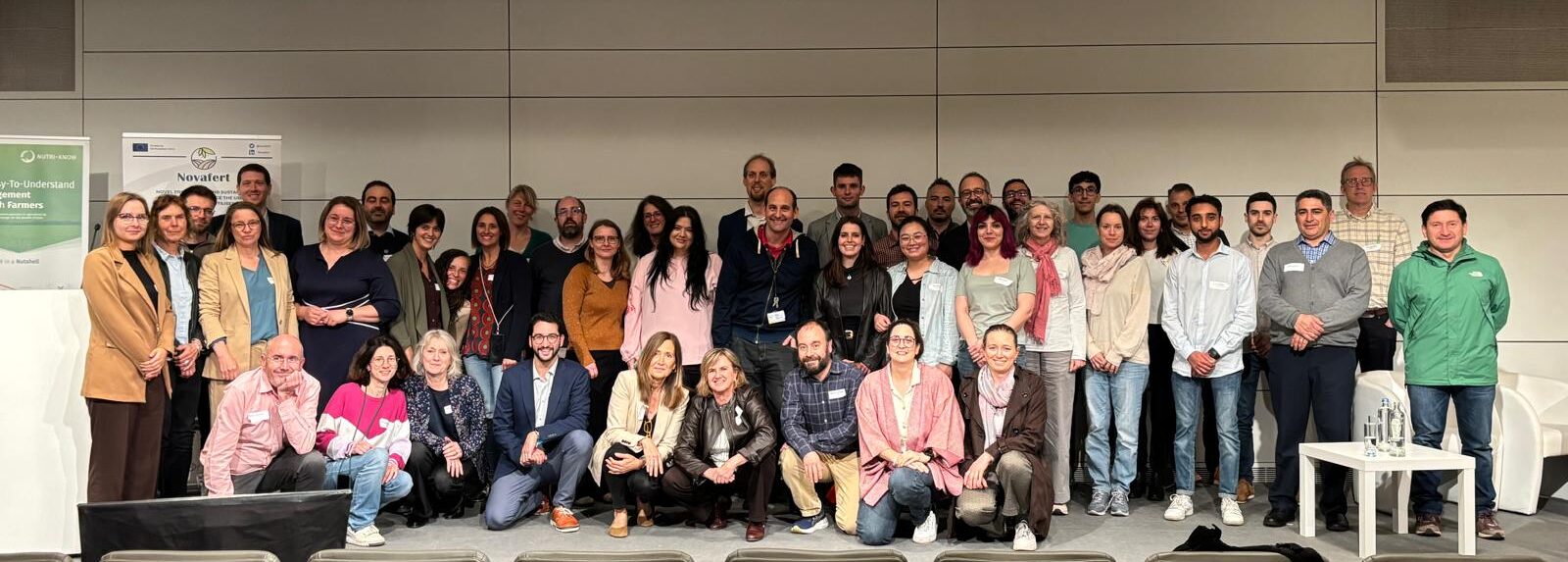On June 5th, the H2020 SEA2LAND project held its final event in Brussels, titled “Advancing Circular Fertilisers: Solutions for a Sustainable Agriculture.” The hybrid-format event featured plenary sessions, policy debates, and parallel workshops. SEA2LAND presented its key findings, policy recommendations, technical results, and future visions.
The day began with a policy debate on nutrient recycling, where experts from SEA2LAND, NOVAFERT, and Nutri-Know discussed current barriers and necessary policies to promote the use of circular fertilisers. Later, technical parallel sessions addressed innovations in circular fertilisers, field experiences, regulatory frameworks, and application cases. The event was undoubtedly a networking opportunity for researchers, farmers, policymakers, and industry representatives.
SEA2LAND’s final event placed the need to rethink the agricultural fertilisation model at the heart of the debate, moving towards a circular and sustainable approach. Producing biofertilisers from fishery waste emerges as a viable and promising alternative to reduce environmental impacts, boost European agricultural autonomy, and improve soil health. The future will depend on the ability to scale these solutions, harmonise them with European standards, and encourage their adoption in the field. Projects like SEA2LAND pave the way for more regenerative agriculture, where waste becomes part of the solution rather than a problem.

Impact, Challenges, and Future Outlook
SEA2LAND represents significant steps toward an agricultural model that values waste as a resource. Some of its key contributions include:
Circularity and sustainability: Transforming fishery by-products into effective fertilisers helps reduce mineral extraction, the carbon footprint of conventional fertiliser production, and environmental pollution.
European resilience and autonomy: Reducing dependence on imported mineral fertilisers strengthens Europe’s agricultural nutritional sovereignty.
Local adaptability: Applying different technologies to local by-products and adapting fertilisers to soil and climate conditions allows for replicable results.
SEA2LAND also highlights technological and regulatory challenges. Despite promising results, challenges remain: cost optimisation, industrial scalability, compliance with European regulations for alternative fertilisers, and certifications for organic farming use.
Finally, dissemination and field adoption are crucial. For real impact, farming communities, policymakers, and industry must adopt these innovations, supported by regulatory incentives and policies.
About SEA2LAND
SEA2LAND (Producing advanced bio-based fertilizers from fisheries wastes) is a European project coordinated by NEIKER, aiming to convert fishery and aquaculture by-products into advanced bio-based fertilisers (BBF). At a time when transitioning to more sustainable economies is a global priority, SEA2LAND emerged as a key initiative in the agricultural and environmental fields. The project seeks to close the nutrient cycle, transform waste into resources, and support more environmentally friendly agriculture.
The project ran from 2021 to June 2025, with a budget of approximately €8.85 million funded by the EU. Its goal is to reduce Europe’s dependence on imported fertilisers by reusing nutrients present in fishery waste, thus mitigating nutrient imbalances in agricultural soils across the continent. SEA2LAND implemented nine technologies applied to seven types of by-products in six pilot areas across Europe (North Sea, Baltic, Atlantic, Cantabrian, Mediterranean, and Adriatic). Technologies used include traditional methods like composting and bokashi, as well as advanced solutions such as thermomechanical fractionation and enzymatic hydrolysis. The resulting fertilisers and biostimulants were tested under various climatic conditions and soil types, including trials by NEIKER in Derio for broccoli crops in 2023 and 2024. Preliminary results are promising: in these trials, SEA2LAND’s biofertilisers delivered yields comparable to traditional mineral fertilisers, with the added benefit of lower environmental impact. Moreover, biostimulants used reduced mineral nitrogen doses by up to 30% without compromising crop yields.
Additionally, the project developed a digital tool: a nutrient imbalance map viewer that helps identify areas with nutrient deficits or excesses and guides the production and application of circular fertilisers.
The SEA2LAND consortium includes 27 partners from 11 countries, encompassing research institutions, industry, universities, and companies from the agricultural and fishery sectors. INICIATIVAS INNOVADORAS is responsible for Communication and Dissemination, as well as supporting the project’s administrative and financial management.
